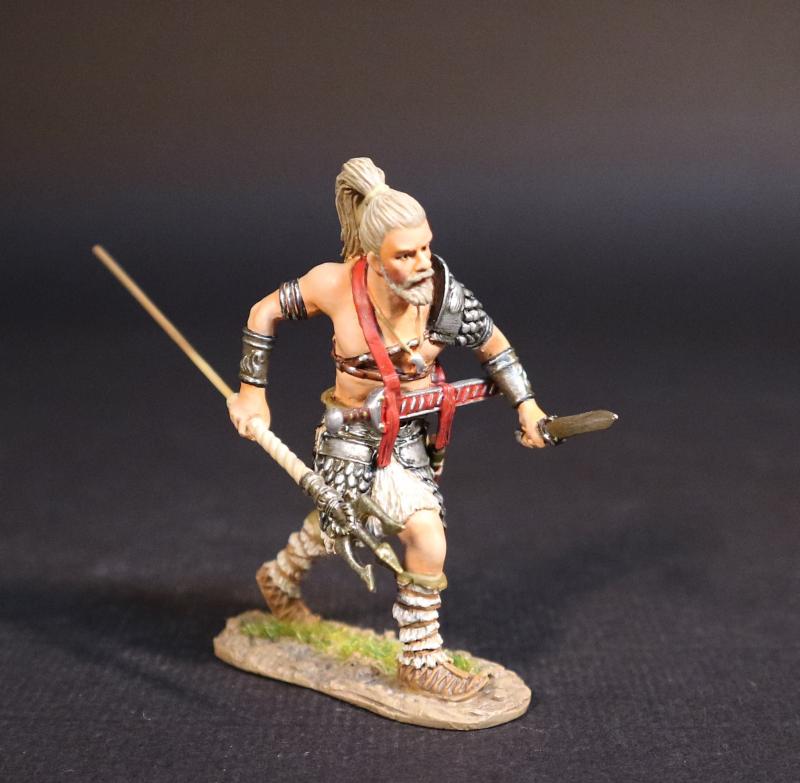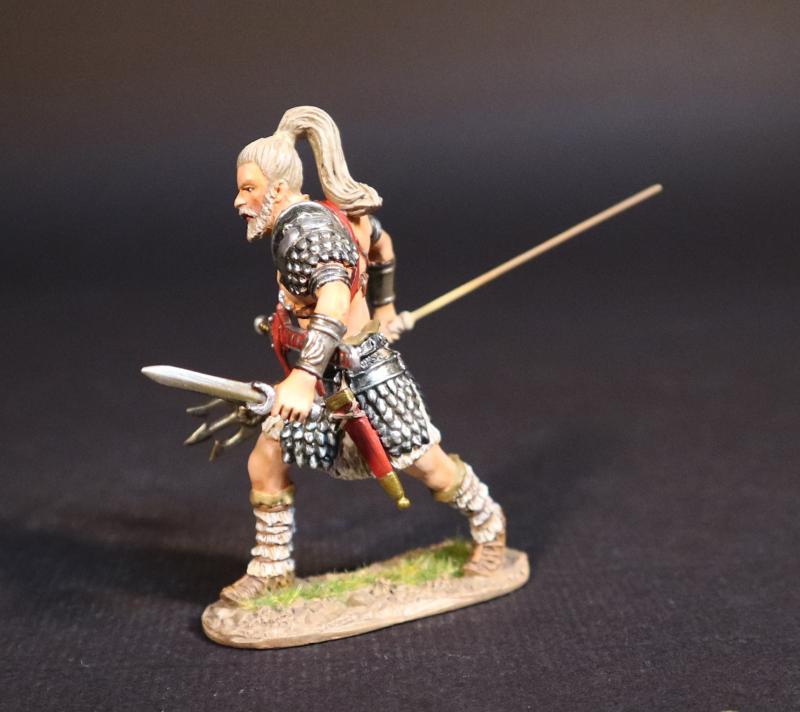King Cycnus of Kolonai, Troy and Her Allies, The Trojan War--single figure with trident and short sword
$56.00
Item Number: TWT-12
King Cycnus of Kolonai, Troy and Her Allies, The Trojan War--single figure with trident and short sword
THE TROJAN WAR
THE TROJANS
Traditionally, the Trojan War arose from a sequence of events beginning with a quarrel between the goddesses Hera, Athena, and Aphrodite. Eris the goddess of discord, was not invited to the wedding of Peleus and Thetis, and so arrived bearing a gift: A golden apple, inscribed “for the fairest”.
Each of the goddesses claimed to be the “fairest”, and the rightful owner of the apple. They submitted the judgement to a shepherd they encountered tending his flock. Each of the goddesses promised the young man a boon in return for his favour. Power, wisdom, or love. The youth, in fact Paris, a Trojan prince who had been raised in the countryside, chose love, and awarded the apple to Aphrodite.
As his reward, Aphrodite caused Helen, the Queen of Sparta, and the most beautiful of all women, to fall in love with Paris.
The judgement of Paris earned him the ire of both Hera and Athena, and when Helen left her husband, Menelaus, the Spartan king, for Paris of Troy, Menelaus called upon all the kings and princes of Greece to wage war upon Troy.
Menelaus’ brother Agamemnon King of Mycenae, led an expedition of Achaean troops to Troy and besieged the city for ten years because of Paris’ insult. After the death of many heroes, including the Achaeans, Achilles and Ajax and the Trojans Hector and Paris, the city fell to the ruse of the Trojan Horse. The Achaeans slaughtered the Trojans, except for some of the women and children whom they kept or sold as slaves. They desecrated the temples, thus earning the wrath of the gods.
Few of the Achaeans returned safely to their homes, and many founded colonies in distant shores. The Romans later traced their origin to Aeneas, Aphrodite’s son and one of the Trojans, who was said to have led the surviving Trojans to modern day Italy.
The Trojans, too had their semi-divine heroes and these included Hector (son of Priam), Aeneas, Sarpedon, and Glaucus, just to name a few. They also had help from the gods, receiving assistance during the battle from Apollo, Aphrodite, Ares and Leto.
The Trojan army defending the great city of Troy, led by their king Priam, had assistance from a long list of allies. These included the Lycians, which was a maritime district in south western Anatolia (now Turkey). It was situated along the Mediterranean coast between Caria and Pamphylia, and extended inland to the ridge of the Taurus Mountains.
CYCNUS OF KOLONAI
Cycnus was the king of the town of Kolonai in the southern Troad. He was the son of Poseidon by Calyce. (daughter of Hecaton). Legend tells that he was abandoned by his mother on the seashore, but was rescued by fishermen who named him Cycnus “swan” because they saw a swan flying over him. In other accounts, he is said to have had womanly white skin and fair hair, which is why he received his name that meant “swan”.
Cycnus supported the Trojans and was a great warrior, killing one thousand opponents. According to some accounts he killed the Greek hero Protesilaus. It was said that being the son of Poseidon, he was invulnerable to spear and sword attacks. When Achilles confronted Cycnus he could not kill him via conventional weaponry so he crushed and suffocated him.
After his death Cycnus was changed into a swan.
SEPTEMBER 2024.

